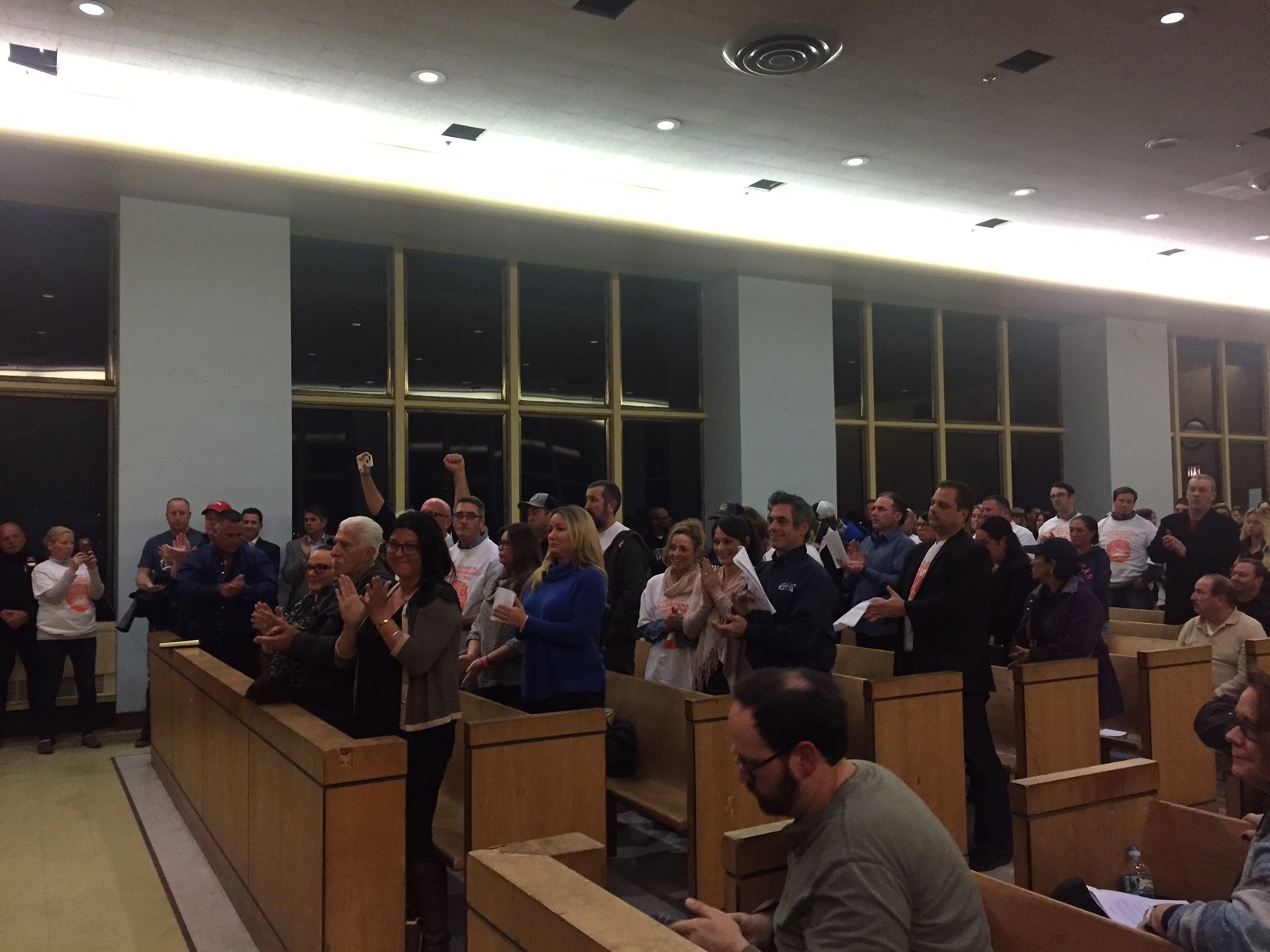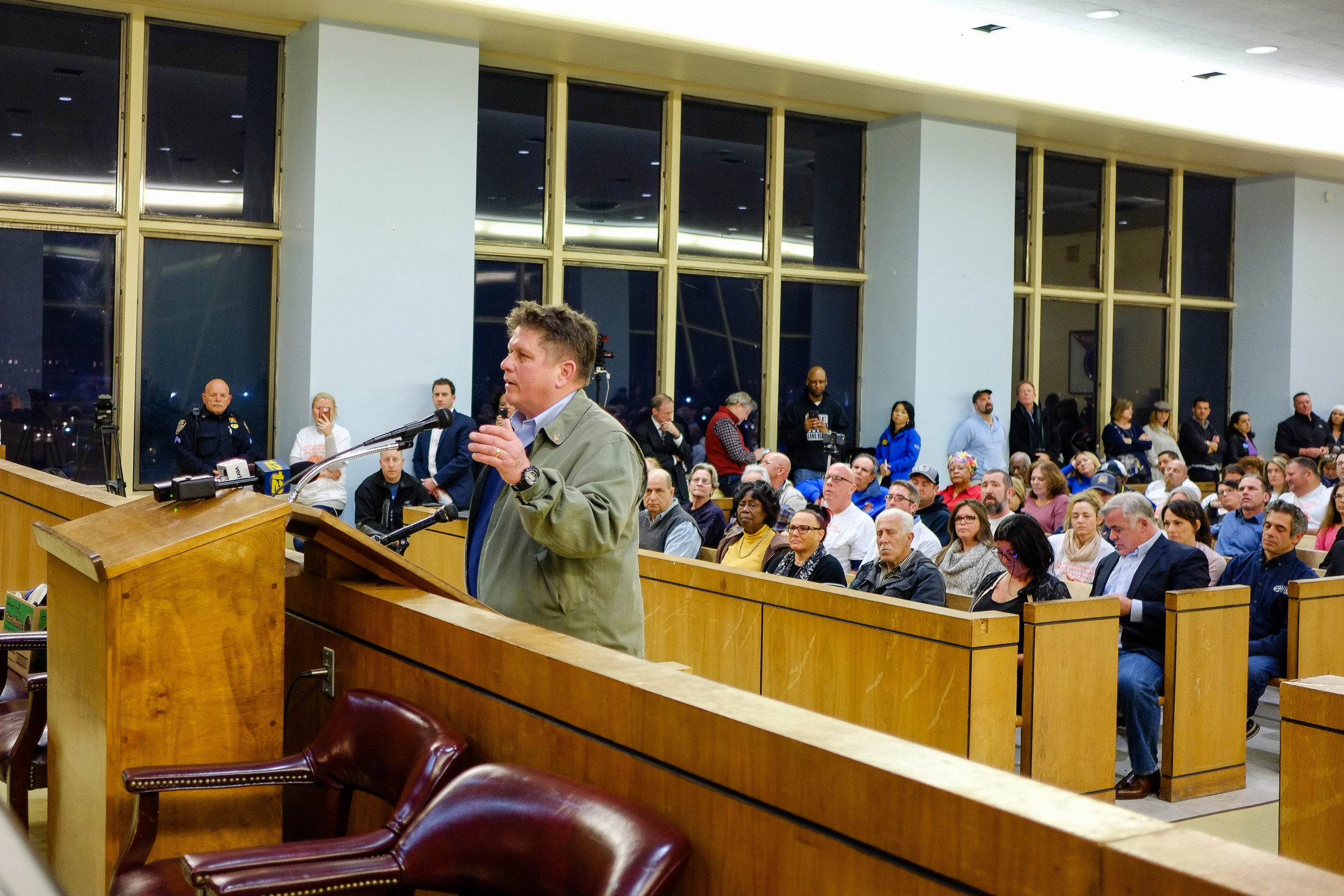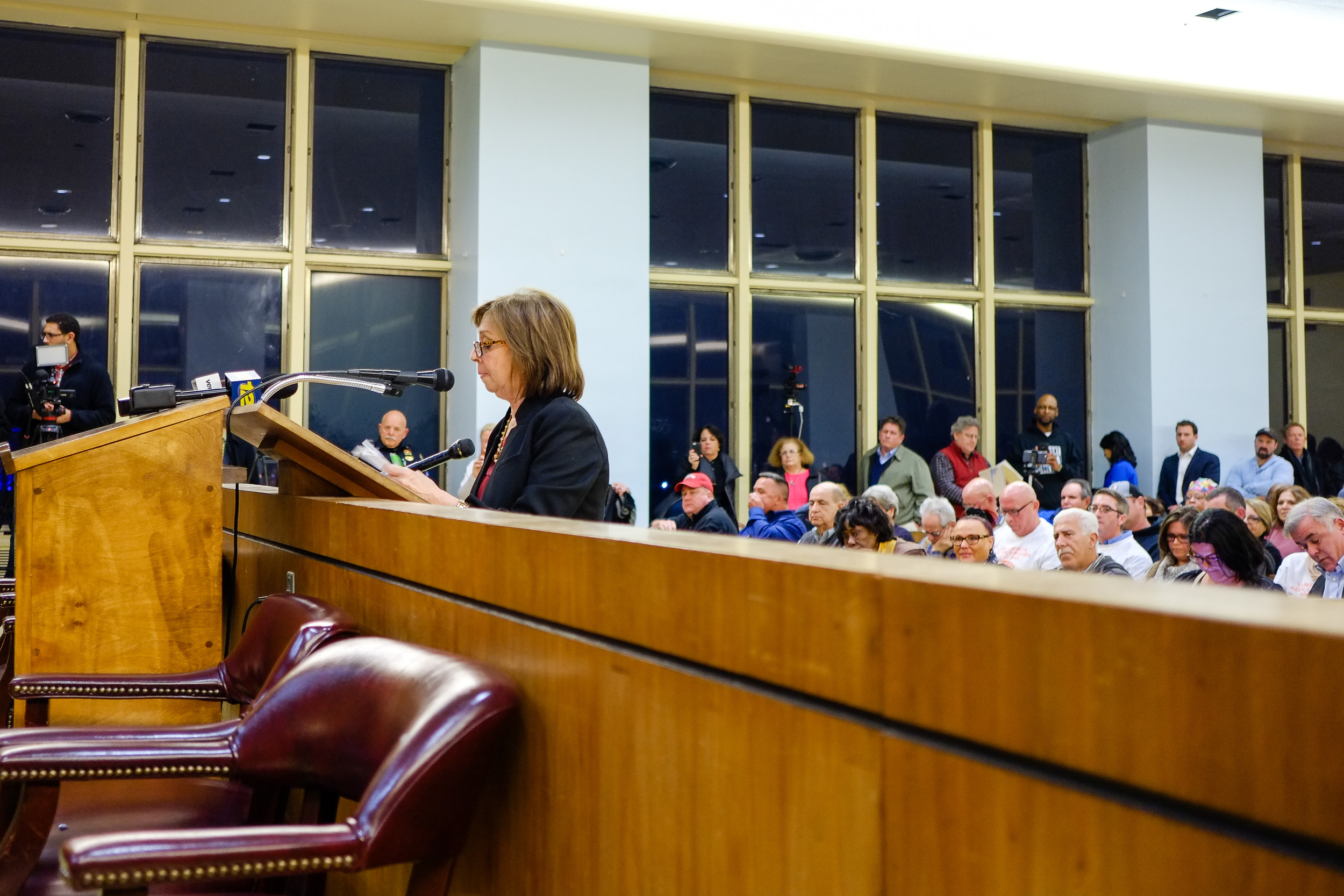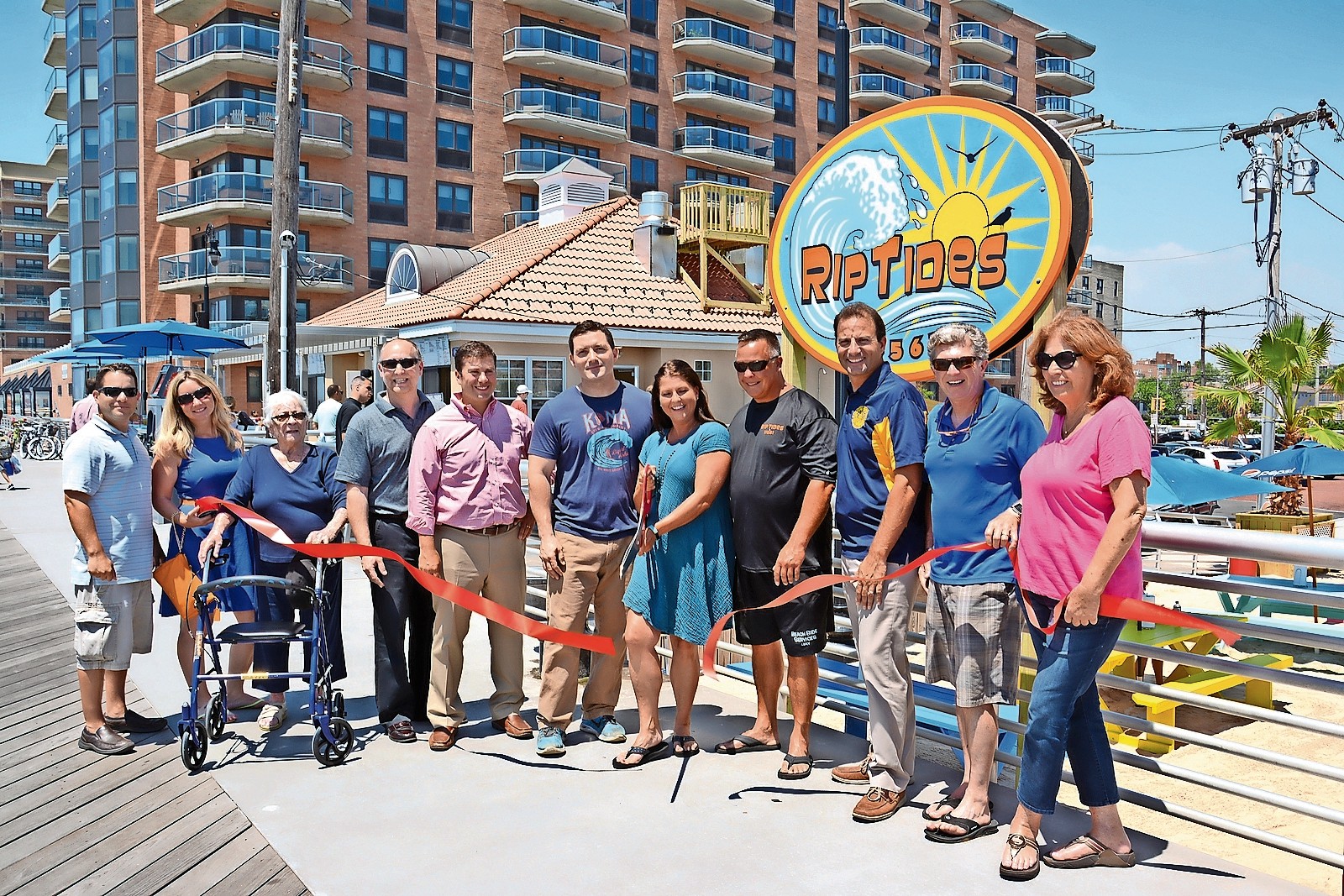Friday, April 19, 2024
 44.0°,
Mostly Cloudy
44.0°,
Mostly Cloudy
Long Beach nixes booze on boardwalk
City Council votes against alcohol sales at concession eateries
After a roughly two-hour-long public hearing over a proposal to sell beer and other alcoholic beverages at several new eateries on the boardwalk, the City Council voted 4-1 to reject the request by the owners of the businesses, citing concerns about safety, quality of life and potential liability for the city.
In what proved to be a divisive meeting, hundreds of people packed City Hall to speak both for and against the proposal, with a number of residents expressing concerns about boardwalk overcrowding, enforcement and the safety of beachgoers, bicyclists and pedestrians.
Others said that alcohol sales would change the “family-friendly” character of the boardwalk and take business away from other bars and restaurants in the city.
The council considered amending the city’s code of ordinances on Tuesday to allow for the limited sale of alcoholic beverages at concession stands, with strict terms and conditions to be included in the revised lease agreements. Alcohol would have been prohibited outside the concession areas on the boardwalk and beach, and the proposal did not apply to the food trucks on Riverside Boulevard.
“The code of ordinances was put into effect in order to protect the health and welfare of the community,” said Judi Vining, executive director of Long Beach AWARE, a nonprofit organization dedicated to preventing underage drinking and substance abuse in town. “The change you are proposing is a sea change, and that calls into question for us, what is the benefit to the city of Long Beach in doing this?”
Vining said that there are already more than 90 establishments in the city that sell alcohol, and maintained that allowing more to do so would lead to an increase in underage drinking. She and others also said that allowing alcohol sales on the boardwalk would send the wrong message to children.
Others noted that the council banned smoking on the boardwalk and beach last year, and that selling alcohol there would be inconsistent with the city’s goal of creating a safer environment.
“It is important to acknowledge that the concession stands are not enclosed, and are very much attached to the boardwalk activities,” said 15-year-old Natalie Goggin, the daughter of former Councilwoman Eileen Goggin. “It would be very easy to walk away from the concession stands with alcohol.”
But many residents, including members of the Chamber of Commerce, spoke in favor of the proposal and challenged those claims, saying that most teenagers drink in private homes. “Let’s not hold our businesses accountable for our kids’ experimentation with alcohol,” said Vinny Leis, a teacher and the father of two young children.
“As parents, let us keep a more watchful eye at home.”
Others said it would be nice to enjoy a meal and a beer while watching the sunset, as visitors to many other beach communities can do.
James Lynch, a member of the Chamber of Commerce’s executive board, told the council that the chamber supported the proposal and that the addition of the boardwalk eateries was part of a larger effort to revitalize Long Beach after Hurricane Sandy, by offering more than hot dogs and burgers based on feedback from residents. “The overall majority of residents said they wanted to see restaurants on the boardwalk,” Lynch said.
Owners of the new eateries were looking to serve beer and other alcoholic beverages in the hope of making their businesses profitable and remaining open throughout the year. Sean Sullivan, owner of Beach Local Café, at Grand Boulevard; Greg LaPenna, owner of Shakes & Shuckers, at Lincoln Boulevard; and Brian Braddish, owner of Riptides, at Edwards Boulevard, were seeking permission from the city, which owns and rents the spaces, to renegotiate their five-year lease agreements and apply for state liquor licenses in response to customer demand and in order to boost revenue.
Concession owners had pledged to work with the city to limit alcohol use on the boardwalk, and offered to restrict beverage service to those 23 and older, limit their hours of operation and close at 10 p.m., hire security guards to maintain safety, and not advertise the sale of alcohol. They had also proposed not serving alcohol in bottles or glasses, and displaying signs detailing open container laws and listing potential fines at all concession exits, among other proposals.
“We’re not going to have nightclubs on the boardwalk,” Beach Local Café Co-owner Kelly Sullivan told the council before the vote. “There’s not going to be a bar.”
Though the concessions, which opened last summer, were only permitted to serve food and non-alcoholic beverages, an initial request for proposals had stated that the city could allow the sale and consumption of alcohol at certain locations.
The owners have said that the city agreed to revisit the proposal, and urged the council to approve their request on Tuesday in order to begin the lengthy process of obtaining State Liquor Authority licenses in time for the summer season.
“We’re now trying to hold these concessions to a different set of standards than we allow for the other businesses,” John Bendo, president of the West End Neighbors Civic Association, told the council.
Business owners and their supporters pointed out that they attempted to work with Long Beach AWARE and others. “I feel like we’ve gone out of our way to engage the community,” Sean Sullivan said.
Former school board President Roy Lester, a lifeguard for 40 years, and others cited concerns about patrons who might enter the water after they’ve had too much to drink — especially when lifeguards are off-duty — or wander into the bike lanes. “To say that it wouldn’t impact safety is a joke,” Lester said. “This isn’t about watching the sunset with a drink … it’s about making money.”
Others argued that beachgoers already sneak booze onto the beach, and that the Allegria Hotel and Overlook on the Beach serve alcohol.
With the exception of Council Vice President Anthony Eramo, council members voted against the measure, after citing concerns ranging from the hours of service and potential liability for the city to the possible transfer of a liquor license to a new concession operator and the potential strain on law enforcement.
Councilman Scott Mandel said that the new leases would include different conditions and liabilities, and that the council does not negotiate the leases. “It’s taking away, after we vote tonight, our ability to control how this is carried out,” Mandel said. “That’s a concern for me.”
HELP SUPPORT LOCAL JOURNALISM
The worldwide pandemic has threatened many of the businesses you rely on every day, but don’t let it take away your source for local news. Now more than ever, we need your help to ensure nothing but the best in hyperlocal community journalism comes straight to you. Consider supporting the Herald with a small donation. It can be a one-time, or a monthly contribution, to help ensure we’re here through this crisis. To donate or for more information, click here.
Sponsored content
Other items that may interest you













